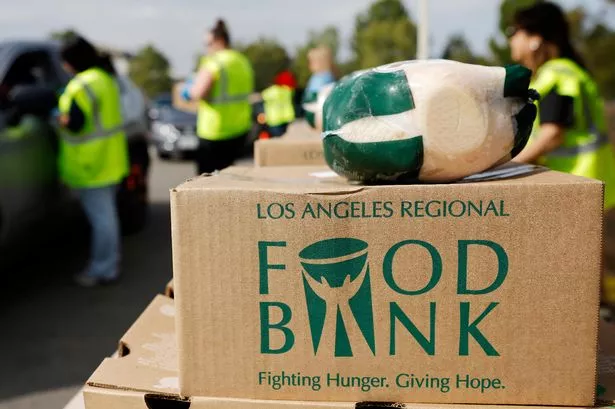URGENT UPDATE: All recipients of the Supplemental Nutrition Assistance Program (SNAP) must reapply for benefits, according to an announcement from the Trump administration. This move aims to combat fraud, with Agriculture Secretary Brooke Rollins revealing shocking statistics: approximately 186,000 deceased individuals are reportedly still receiving benefits, along with 500,000 people receiving duplicate payments.
Speaking on Newsmax’s “Rob Schmitt Tonight,” Rollins emphasized the administration’s commitment to “clamping down” on fraudulent activity within the system. “Can you imagine when we get our hands on the blue state data what we’re going to find?” she stated, indicating a potential broader issue.
SNAP supports about 42 million Americans, roughly 1 in 8 citizens, primarily from lower-income households. Each recipient receives an average of around $190 monthly, although this often falls short of covering a full month’s grocery costs. Rollins asserted that the mass reapplication process would “fundamentally rebuild” the program, ensuring that only those who truly need assistance remain beneficiaries.
Details on how the reapplication process will work are still unclear. The U.S. Congressional Research Service previously reported that SNAP fraud is “rare,” often attributed to unintentional errors rather than deliberate fraud.
In light of the recent government shutdown, state officials are racing to distribute full SNAP benefits to those who have faced significant delays. As of late Wednesday, November benefits had been affected by a series of legal and policy changes under the Trump administration, leading to a patchwork distribution. While some states had managed to issue full benefits, approximately two-thirds had only distributed partial payments or none at all, according to an Associated Press tally.
The U.S. Department of Agriculture (USDA) has urged state agencies to take immediate action to ensure households receive their complete November benefits. Additionally, to alleviate pressure during this transition, the USDA has temporarily exempted most adult SNAP recipients from the usual requirement to work, volunteer, or participate in job training for at least 80 hours a month.
As this situation develops, the impact on millions of Americans who depend on SNAP for their daily sustenance cannot be overstated. The urgency of reapplying for benefits may leave many vulnerable families in a precarious position as they navigate these changes.
Stay tuned for more updates as the USDA and state agencies unveil further details on the reapplication process and the future of SNAP benefits.







